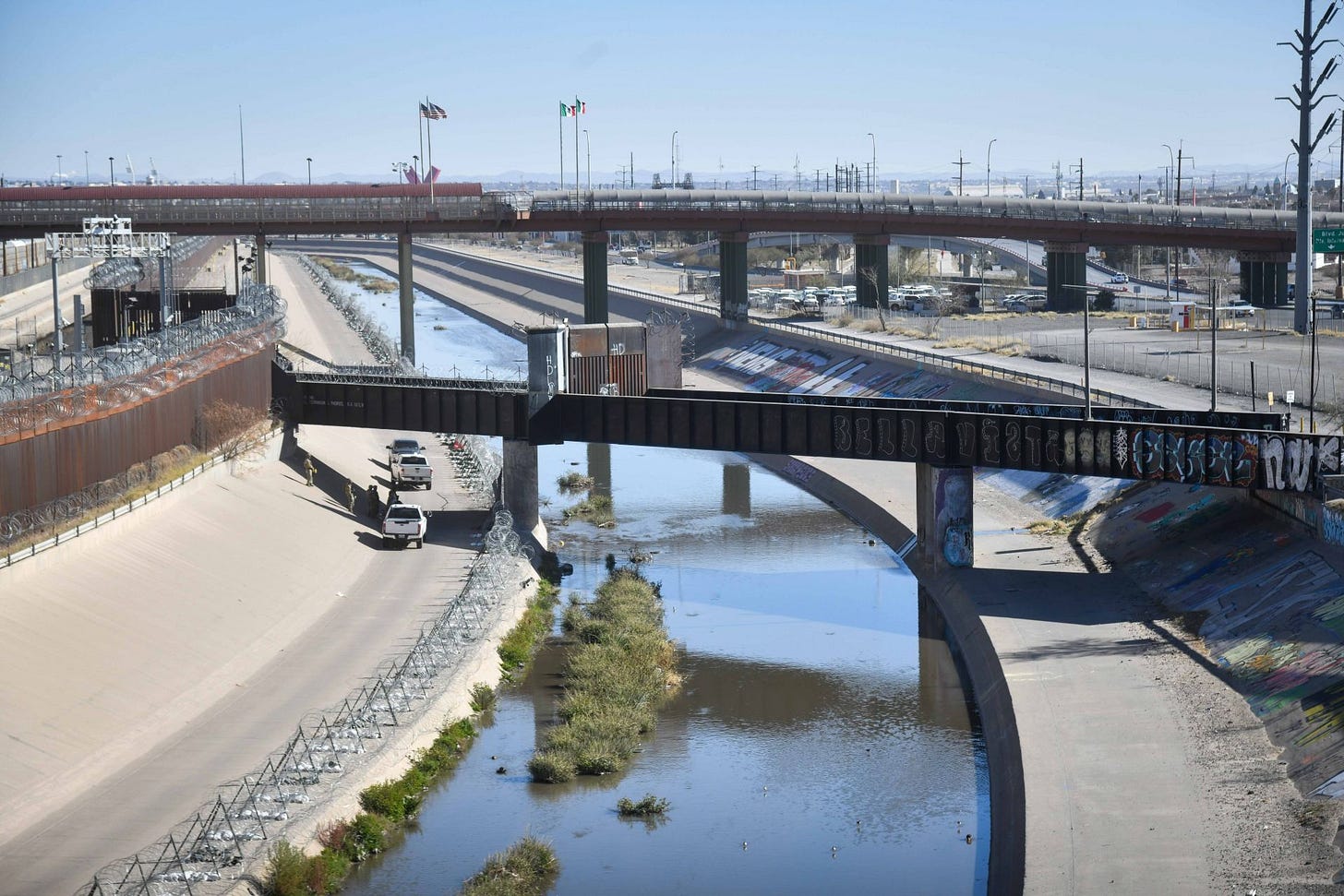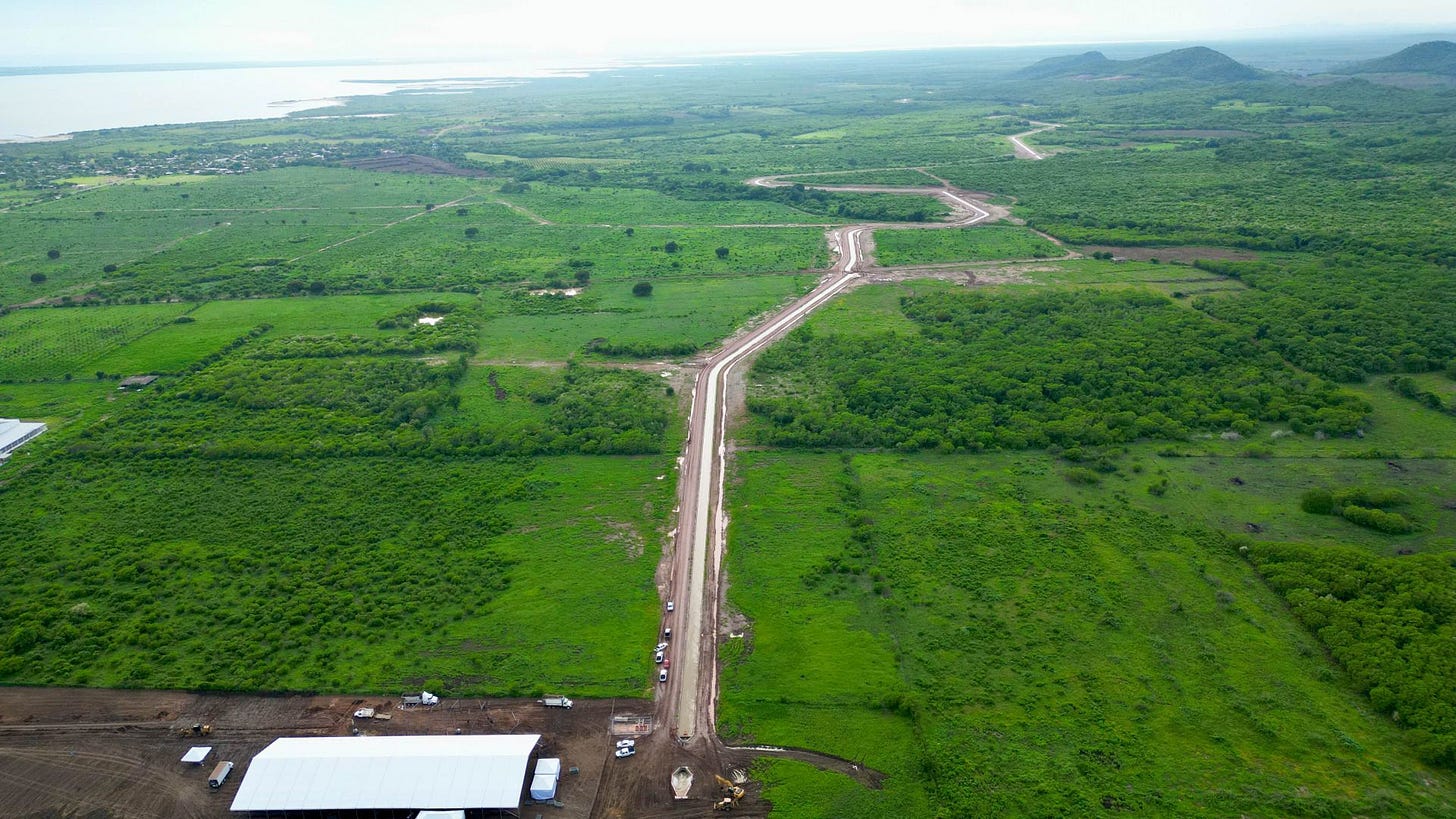28 Mar 25 | Water Knows No Borders
Also: Massive dance party in the Zócalo. Michael Moore: Silence is not an option. Impunity prevails in the cases of murdered journalists. Artists support families searching for disappeared loved ones.
Lea La Jornada Internacional en español aquí.

Water, a new front in the transformation of Mexico
Water is life, and it knows no borders. The management of this precious liquid across borders in the face of the climate crisis, unsustainable development and the privatization of water rights is a transnational challenge–and threat–that by definition is vital to our immediate future. In March, the United States launched a new conflict in the bilateral relationship with Mexico by denying Tijuana water from the Colorado River for the first time. “Mexico’s continued failures in its deliveries under the 1944 water-sharing treaty are decimating U.S. agriculture, particularly producers in the Rio Grande Valley,” the State Department declared on the social network X.
“Under the 1944 International Water Treaty, Mexico is obligated to ensure a volume of the water in the Rio Grande flows to Texas, and in exchange, we receive 1.85 billion cubic meters of water from the Colorado River, more than three times what Mexico cedes to the United States,” Armando Samaniego, former head of the Secretary for Management, Sanitation, and Protection of Water in Baja California, explained to La Jornada. This is how the two countries manage transboundary waters; farmers and industry in the western United States use water from the Colorado River before it reaches Mexico, while farmers in Chihuahua extract water from the Rio Grande before it reaches farmers in Texas.
But agricultural production is declining in Chihuahua due to drought, and the government expects a 40 percent reduction in the area that is cultivated. The dams that feed the Rio Grande in the state have little or no water, so the state will not be able to contribute the water that is owed to the United States. "Obviously, the Mexican government is expected to defend the right of the people of Chihuahua to guarantee their basic activities, and the treaty itself allows for the possibility of delaying payment when we are facing drought conditions like this," insisted Chihuahua's Secretary of Government, Santiago de la Peña Grajeda.
In the United States, Republican senator Ted Cruz says Texas farmers are suffering and insists that the Trump administration should sanction Mexico for not complying with the treaty. This was the only issue he asked Trump's new ambassador to Mexico about. President Claudia Sheinbaum has insisted that Mexico will pay its dues, but acknowledged that part of the problem is that "there has been less water."
This is not a short-term problem, explained Mauro Parada Muñoz, head of Rural Development in Chihuahua. "This phenomenon is related to climate change, which has exacerbated variations in rainfall and raised average temperatures, affecting agricultural cycles and the availability of groundwater."
Another problem is water use. In Mexico, 76 percent of the available water is used for agricultural purposes, 14 percent for public consumption in urban areas, 5 percent for industry, and 5 percent for electricity generation. More than 30 years ago, a reform to the National Water Law opened up the issuance of permits to private individuals, which increased from 2,600 to 360,000 by 2023, transforming water from a human right to a commercial concession.
The National Autonomous Citizen Comptroller’s Office of Water, made up of indigenous peoples, researchers, and social and environmental organizations, emphasizes that this over-concessioning must be remedied. But the question is how. Alicia Bárcena, Secretary of the Environment and Natural Resources, explained that the reform to the National Water Law is pending. She specified that the current administration’s National Water Plan seeks to establish a new balance in water use.
What remains to be seen is not only when this reform will be achieved, but also how the transnational management of this vital liquid will be negotiated with the United States, and, in the long term, how water management will be addressed in Mexico and in this hemisphere, not to mention on the entire planet..
The Quote
Either I no longer understand what is happening, or what I was understanding has already passed..
—Carlos Monsiváis
In case you missed it
◻️ Thousands dance in the Zócalo. For 12 hours, the Zócalo became the largest dance floor in Mexico City, as thousands came to move their bodies to the sounds of salsa, cumbia, and guaracha, at the Noche de Primavera Festival. ▶️ VIDEO
◻️ Michael Moore: Silence is not an option. The renowned American filmmaker writes about repression, immigrants, the arrest of Palestinian student Mahmoud Khalil, his immigrant wife Noor Abdalla, and the need to continue protesting Trump and his administration's attacks on civil liberties and rights.
◻️ Few answers to the murders of journalists. It's been eight years since Miroslava Breach, a correspondent for La Jornada in Chihuahua, was murdered in retaliation for her journalistic work. So far this year, four journalists have been murdered in Mexico. The prevalence of impunity constitutes an affront to their memory.
◻️ Trump's attack on education and culture. With his executive order to begin dismantling the Department of Education, Trump is accelerating his attack on public education and universities, part of efforts that, according to La Jornada, seek to turn back the clock a century.
◻️ Artists express support for those searching for their disappeared loved ones. Producer Bertha Navarro, director Alfonso Cuarón, actor Gael García, actress Ofelia Medina, producer Inna Payán and hundreds of other artists express their solidarity with those searching for missing persons in Mexico.
◻️ Contemporary Indigenous Poetry from Mexico. The book Xochitlajtoli: Contemporary Poetry in Native Languages of Mexico includes works published on the website of the online magazine Círculo de Poesía. “I am the woman who holds in her tongue the words my mother never said,” writes Araceli Tecolapa in a piece that is part of the collection. Read the rest of the poem here.
◻️ Senel Paz, the renowned Cuban writer and screenwriter (Fresa y Chocolate), recalls his friendship with writer Hernán Lara.
◻️ The dreams we share. Valentina Leduc Navarro made a feature-length documentary portraying three true stories that show how community organizing can triumph over capitalist incursions that seek to seize land and natural resources at any cost.
◻️ Migrants living in Chicago. The book Narrar lo propio tells stories of migrants, who in their own voices, retell the experience of changing geography and identity. In these pages, Chicago is the canvas upon which shapes, colors and cadences come to life and become forms of activism in themselves.









